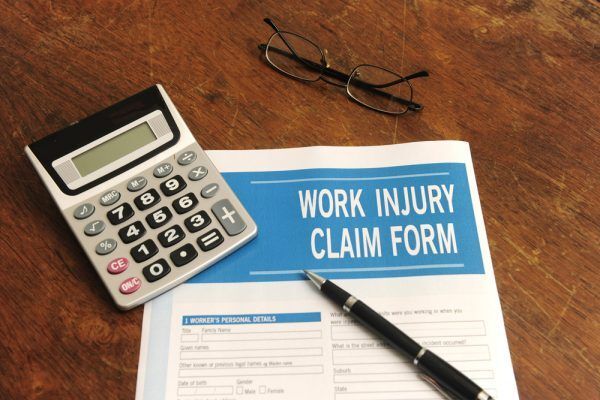The State of California allows for employers to be self-insured with respect to their obligation to maintain workers’ compensation insurance. This article will discuss the nature of self-insurance, how to find out whether your employer is self-insured, and how it can impact an Injured Worker’s claim for benefits.
What Types of Employers Can Be Self-Injured?
Both Private Industry Employers and the Public Sector Employers are allowed to participate in self-insurance. Private Industry Employers mean businesses such as restaurants, manufacturers or agriculture. Public Sector means various government departments or agencies such as counties, cities, and school districts.
How Do I Know That My Employer is Self-Insured?
If your employer has acknowledged your claim, you may receive some correspondence that may indicate that your employer is self-insured:
- First, if your employer sends claims letters on their own letterhead, that may be a strong indication that they are self-insured.
- Second, if you see that you are receiving a letter from a Third-Party Administrator, that may indicate self-insurance.
- Third, if you see a claims letter that refers to Joint Powers Act or JPA, that may be an indication of self-insurance.
- Fourth, claims administration correspondence may identify themselves as representing a self-insured employer.
How Can I Check If My Employer is Self-Insured?
It is possible to check on-line to see if your employer is self-insured. I would like to recommend a two- step process to be taken.
First, I would check the Insured database search. If there is no finding on this search, then I would recommend that you use the Self-Insured database search. Below are the links for both searches.
Insured Search
https://www.caworkcompcoverage.com/Disclaimer.aspx
Self-Insured Search
https://www.dir.ca.gov/osip/databases/sisr/default.aspx
Is Self-Insurance Common in California?
Yes. California, per the DIR, has one of the largest self-insurance programs in the United States. As of 1/1/18, 7,141 California employers were actively self-insured.
Does This Mean That Each Individual Company Has Its Own Insurance?
No. Businesses and Governmental Agencies sometimes do not have their own insurance but share their insurance-obligation with other like employers. They also have private industry-specific group self-insurers which can have many different employers participate aka as self-insured groups. For example, McDonalds Restaurants, who are owned by individuals, may participate in a self-insurance pool with other McDonald Restaurants which are individually owed.
Likewise, public employers participate in pools of other self-insured employers. For example, a number of school districts may participate in a pool with other school districts.
Why Do Employers Choose Self-Insurance?
Employers choose self-insurance of workers’ compensation for a multitude of reasons:
- Cost Effectiveness
- Greater Control of Claims Program
- Increased Safety and Loss Control Management
- Dislike of Purchasing a Regular Workers’ Compensation Insurance Policy
In sum, the choice of self-insurance can impact “how much money will be paid out on certain claims” and “how a troubled employee will be treated.” Self-Insured Employers want to save money. This can be done by both paying out less on claims and by discouraging the filing of claims.
Self-Insured Employers may want to set precedent in informing their Employees that a “work injury” is not “hitting the lottery.” This is meant to discourage claims filings and lower the expectations of co-workers with respect to their claims. Second, there may be a political nature to a claim. An Employee, who is perceived as having wronged the Employer, may have their claim fought more vigorously. For example, an employee who was fired for being drunk on the job and then turned around to file a post-termination continuous trauma claim.
Does Self-Insurance Mean that the Employer has Their Own Claims Department to Handle My Claim?
No. Some companies who are self-insured maintain their own workers’ compensation department and their own employees adjusting the claim. Other companies contract with a Third-Party Administrator (TPA) to perform some of the adjusting services The TPA may consult with the Employer with respect to authority to settle cases.
Can Any Company Be Self-Insured?
No. They must qualify through an application process and meet certain financial requirements.
Are Claims Handled the Same If It is a Self-Insured Employer?
Yes and No. Self-Insured Employers are required to provide the same scope of benefits as an Insurance Company. They must be adjusted in California. Further, they are subject to audits by the Division of Workers’ Compensation.
Claims handled by Insurance Companies are less personal. The Insurance Company works in their own interest to resolve cases. They retain their own legal staff to handle the matters in the way that they desire. When claims are handled by self-insured, there are many issues that come into play. Two important ones are to discourage employees from a culture of claims filing and that some claims may be taken personally. Finally, there may be decisions of a self-insured which may be related to the financial health of their self-insurance. For example, there may be a need to close out files to eliminate the number of open claims.
What If I Need Legal Advice?
If you would like a “free” consultation concerning any workers’ compensation case, please contact the Law Offices of Edward J. Singer, a Professional Law Corporation. They have been helping people in Central and Southern California deal with their worker’s compensation cases for 28 years. for more information.
